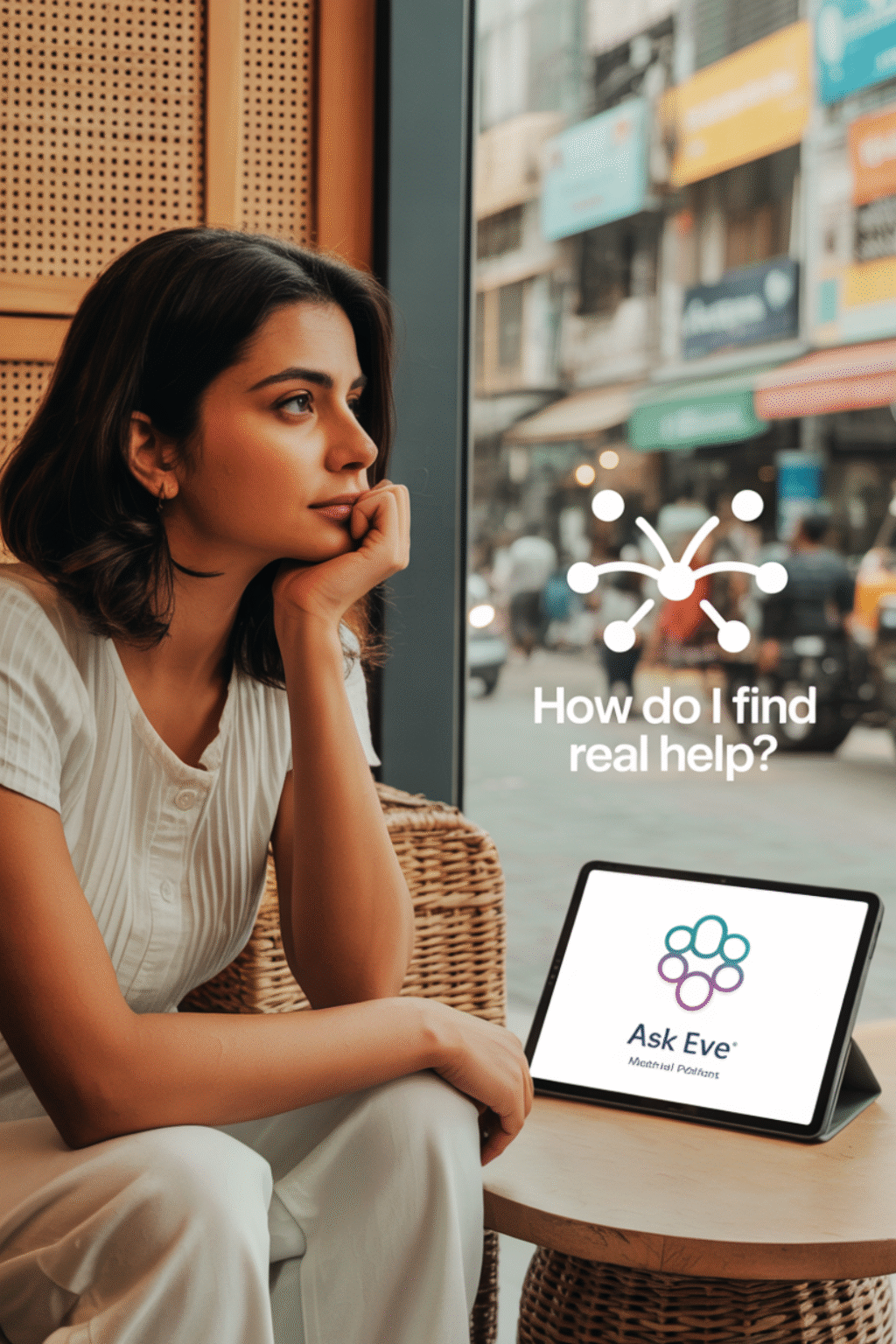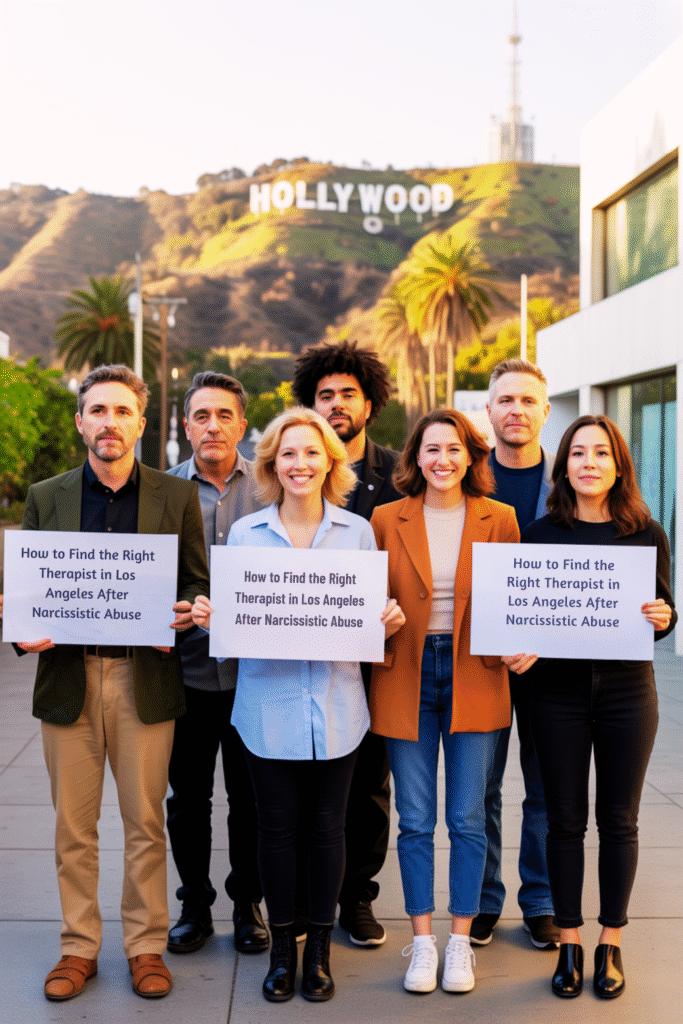Now Reading: How to Find the Right Therapist in Chennai Metro After Narcissistic Abuse
- 01
How to Find the Right Therapist in Chennai Metro After Narcissistic Abuse

How to Find the Right Therapist in Chennai Metro After Narcissistic Abuse
🇮🇳 How to Find the Right Therapist in Chennai Metro After Narcissistic Abuse
Chennai is more than engines and temples—it’s a city where cultural pride meets deep-rooted expectations. For survivors of narcissistic abuse, these same traits can both hinder and support healing:
- High respect for family and authority may delay naming abuse as such—or discussing it out loud.
- Seeking “resilience” can become code for “stay quiet.”
- Language matters. Healing needs to happen in English, Tamil—or both.
🛑 1. Why Chennai Needs Culturally Specific Trauma Care
In Chennai, collectivist values—emphasis on family harmony, loyalty, and respect—can mask emotional manipulation. Survivors often:
- Feel trapped balancing respect and self-preservation.
- Doubt themselves because emotional abuse isn’t “supposed” to happen in a respectful family.
- Face social stigma for seeking help.
Things like EMDR, Inner Child work, and Somatic Experiencing can help—but only when they’re delivered with cultural fluency.
🧠 2. What to Look For in a Chennai Healing Professional
Look beyond portfolios:
- Trauma-informed and narcissistic-abuse-trained therapists (not just general counselors)
- Modalities: EMDR, Somatic, Body-centered, DBT/CBT
- Bilingual support: English & Tamil (often Hindi/Bengali too)
- Validation-first stance, acknowledging emotional abuse is real—even if no bruises are visible
- Long-term, not quick-fix, personalized plans
🧊 3. 10 Real Screening Questions You Must Ask
- “Have you helped clients navigate narcissistic abuse or trauma bonding?” Why: Mental health professionals specializing in emotional abuse will talk about patterns, not just “relationship stress.”
- “Which trauma modalities do you use—EMDR, Somatic Experiencing, IFS?” Why: EMDR is officially endorsed for PTSD by WHO, APA, and APA . Somatic Experiencing processes trauma stored in the body .
- “How do you validate clients when narcissistic abuse comes up without physical evidence?” Why: Emotional abuse is real. If the therapist dismisses without naming it, it’s a red flag.
- “How do you support boundary development in enmeshed or joint-family contexts?” Why: Breaking generational patterns in Indian families isn’t surface-level psychology—it needs tuned strategies.
- “Can you help me process trauma when ‘no contact’ isn’t an option?” Why: In India, cutting ties is often impossible. Effective healing methods work within relationships.
- “How do you handle shame, dishonor, guilt related to family reputation?” Why: These layers need acknowledgement to rebuild self-worth.
- “If I push back in therapy, would you welcome it?” Why: Healing is collaborative. A good therapist discerns what feels true to you.
- “Are you prepared for long-term work?” Why: Narcissistic abuse dismantles identity. It’s not about “rapid trauma release.”
- “Do you give tools (journaling prompts, grounding, Somatic exercises) between sessions?” Why: Change happens outside the room.
- “Do you offer bilingual therapy—for example, in Tamil + English?” Why: Processing pain in your most authentic language matters.
💼 4. Verified Chennai Professionals & Clinics
Here are verified professionals offering trauma-informed, culturally sensitive care:
Karma Peak Brain – PTSD Specialists
- Modalities: EMDR, TMS, trauma-centered CBT
- Official PTSD center in Chennai
- Profile details: 476 Anna Salai, Nandanam
- Phone: 044-47868329 / 9043911073
The Healing Space – Dr. Priya Puri & Team
- Approach: EMDR, Somatic, Schema Therapy, trauma + personality concerns
- Languages: Tamil, Hindi, English, Bengali, Punjabi
The Mind Body Foundation – Anitha Dubal
- Trauma-focused psychotherapy for adults, includes trauma, complex PTSD, self-esteem issues
- Bilingual professional practicing in central Chennai.
Trauma-Informed Therapy – Chennai Counseling Services
- Offers CBT, Mindfulness, Somatic practices in trauma-informed model
- In-person + online modes available
SoulUp – Sinol Menezes
- Focuses on narcissistic abuse, dating fatigue, breakup recovery
- Licensed counselor, safe and inclusive environment
Feel & Heal Counseling Service
- Premier center offering psychotherapeutic support for emotional trauma, including abuse-related issues
Anitha D. – Relational & Somatic Therapist
- Instagram-based practice: trauma, somatic counseling, queer-affirmative
🌐 5. Expat & Peer Support Options
- Online platforms like Practo list specialists in narcissistic personality disorder
- Examples: Dr. Hema Karthik, Dr. Getsy Solomon, Mr. Elayaraja
- Support groups on WhatsApp/Facebook for Chennai trauma survivors—search “Chennai trauma abuse support”
🧭 6. Typical Care Model & Costs
| Stage | What Happens | Estimated Cost |
|---|---|---|
| Discovery call | 15–30 min free to explore fit and language usage | Free–₹500 |
| Initial sessions | Trauma history, coping checks, grounding work, safety planning | ₹1,500–₹3,000/session |
| Deep trauma phase | Weekly EMDR/Somatic sessions, identity repair | ₹1,500–₹3,500/session |
| Maintenance / transition | Biweekly check-ins, resilience tools, support network integration | Same range |
🛠 7. Your Chennai Healing Roadmap
- Pick 3–4 therapists from above—prioritize modality + language.
- Do discovery calls, ask the ten questions.
- Choose based on feeling safe, heard, and validated.
- Combine with peer support or group sessions.
- Create daily grounding & somatic routines.
- Assess progress quarterly: Do you trust yourself more? Feel less guilt/shame?
🔍 8. Why the Modalities Work in This Context
- EMDR is globally recognized for PTSD—efficient trauma processing .
- Somatic Experiencing addresses trauma as a bodily imprint .
- Schema Therapy and Inner Child work rebuild damaged identity from emotional abuse.
- CBT / Mindfulness supports noise management amid cultural pressures.
- Trauma-informed care reframes shame, guilt, family expectations as part of recovery.
How to Find the Right Therapist in Chennai Metro After Narcissistic Abuse: Your Mega FAQ
This section is meant to live at the bottom of your post or stand alone as an internal link hub. It’s survivor-first, Chennai-specific, and tuned to the emotional complexity of narcissistic abuse in collectivist cultures.
❓
1. What makes Chennai different when looking for a therapist after narcissistic abuse?
Chennai’s collectivist values (respect for elders, family loyalty, religious tradition) can make naming emotional abuse taboo or socially risky. Therapists need to understand these dynamics, not just psychology. You’re not just healing—you’re navigating family structures, unspoken expectations, and cultural weight.
If a therapist doesn’t understand what it means to live in a joint family where boundaries are blurred, or why “no contact” may not be realistic, they’re not equipped to help you heal authentically.
❓
2. How can I tell if a therapist is trauma-informed and abuse-competent—not just general talk therapy?
Ask them directly:
“Do you have experience working with survivors of narcissistic abuse or emotional manipulation?”
Look for answers that include:
- Understanding of trauma bonding
- Familiarity with gaslighting, identity erosion, and covert manipulation
- Use of EMDR, IFS, Somatic work or similar
- Comfort with long-term healing, not quick fixes
❓
3. What should I do if I don’t feel “safe” with the therapist after 1–2 sessions?
You leave. You owe no loyalty to a therapist who:
- Minimizes your story
- Interrupts you
- Says “everyone has a little narcissism”
- Doesn’t know what emotional abuse is
- Pushes fast solutions when you’re still unraveling confusion
Survivors of narcissistic abuse need validation-first environments. Not everyone is trained for that.
❓
4. Do I need EMDR or Somatic Experiencing to heal?
No, but they accelerate recovery when done right.
- EMDR helps process trauma memories without re-traumatizing
- Somatic Experiencing unlocks trauma stuck in the nervous system
- IFS (Internal Family Systems) helps reconnect fractured inner parts often created by prolonged emotional abuse
Think of them as tools—not requirements. Some survivors thrive with journaling + peer support. Others need high-touch professional work.
❓
5. What if I can’t afford private therapy in Chennai?
First, try:
- Government hospitals with psychology departments (e.g., Stanley Medical, Rajiv Gandhi)
- Low-cost therapy via NGOs like Minds Foundation, Sumaitri, iCall, or Samaritans Mumbai (remote)
- SoulUp, which offers peer support and affordable counseling
Also: some trauma-informed therapists offer sliding-scale options if you ask.
❓
6. What if my therapist only speaks English, and I’m more fluent emotionally in Tamil?
That matters. Language is emotional currency. You should be able to cry, rage, or reflect in the words that match your nervous system’s memory.
Ask upfront if the therapist:
- Speaks Tamil (or Hindi, Bengali, etc.)
- Can switch languages mid-session
- Can explain trauma concepts in your mother tongue
If not? Keep looking.
❓
7. Can I heal even if I still live with or near the narcissist?
Yes. Ideal? No. Doable? Absolutely.
Many Indian survivors can’t go “no contact” because of:
- Family pressure
- Financial dependence
- Social backlash
- Marriage systems
But healing is still possible. Therapists trained in boundary coaching, emotional detachment techniques, and covert recovery work can help you reclaim power silently—until you’re ready to make louder moves.
❓
8. How long will it take to heal narcissistic abuse?
Not cute, but honest answer: longer than you want. Especially if:
- The relationship was long-term
- You experienced childhood trauma before the abuse
- You were gaslit to the point of identity collapse
That said? Many survivors feel better in 3–6 months of trauma-informed care. Full integration of boundaries, nervous system calm, and self-trust might take 1–2 years—but you’ll feel shifts along the way.
❓
9. Are there peer support options in Chennai I can trust?
Yes. Some to explore:
- Facebook groups (search: “Narcissistic Abuse Support Chennai” or “Tamil Nadu Mental Health”)
- SoulUp, a platform pairing survivors for peer 1-on-1s
- WhatsApp circles created from local support workshops (ask your therapist or NGO)
- Global options like r/CPTSD or Instagram therapists (for validation if nothing else)
Just vet carefully. Not all peer support is safe. Avoid “advice givers” who dominate space or shame people for going back.
❓
10. What does a typical healing process look like in Chennai?
| Stage | What Happens | Notes |
|---|---|---|
| Discovery | Free/low-cost intro calls | Test for safety & cultural fluency |
| Intake | Trauma history, family mapping | Might feel emotionally raw |
| Early Sessions | Grounding, validation, psychoeducation | Foundation-building phase |
| Core Trauma Work | EMDR, Somatic, Schema, IFS | Identity rebuilding |
| Maintenance | Biweekly check-ins, resilience tools | Less intense, more spacious |
| Integration | Self-trust, boundaries, peer support | This is the real you returning |
👉 “How to Find the Right Therapist in Chennai Metro After Narcissistic Abuse”
🧠 The IMC Method™ Workup: Chennai Metro Healing Strategy
The IMC Method™ is your trauma toolkit: Identify, Minimize, Control. Let’s map this method onto the terrain of Chennai — a city where emotional abuse often hides under politeness, tradition, and “what will people think?”
🔍
IDENTIFY
: Seeing the Narcissistic Dynamics in Chennai’s Context
Narcissistic abuse in Chennai often wears cultural camouflage. Here’s how survivors in this city can learn to identify it—even when it’s dressed up as “discipline,” “devotion,” or “respect.”
🧩 The Cultural Cover-Up:
- Family honor gets weaponized to silence victims.
- Elders’ authority becomes unchallengeable—even when abusive.
- Obedience is sold as virtue, even if it erases your identity.
So the abuse doesn’t look like rage or violence. It looks like:
- Emotional blackmail (“Don’t bring shame to the family.”)
- Forced enmeshment (“You’re nothing without your family.”)
- Reality-twisting (“You’re too sensitive,” “You misunderstood.”)
🧠 How to Identify Abuse in This Environment:
- Notice how often you’re second-guessing yourself.
- Pay attention to emotional invalidation. Do you hear, “Don’t overreact” constantly?
- Ask: Are your needs being minimized, dismissed, or punished when expressed?
🧪 Questions to Ask Yourself:
- Do I walk on eggshells around someone who insists they “love me”?
- Have I been gaslit into believing emotional pain isn’t valid unless it’s physical?
- Do I feel pressure to keep the peace no matter what it costs me?
This is the “naming” phase. In a city like Chennai, it’s the most radical step of all. Because naming it means breaking a generational silence.
⚠️
MINIMIZE
: Reducing the Harm Without Escalation
Once you see it clearly, the next move is harm reduction. This is especially hard in Chennai, where:
- “No contact” isn’t always an option.
- You’re often financially, emotionally, or logistically tied to the narcissist.
- Therapy may not even be accessible without family approval.
So we shift focus: not escaping yet — but minimizing impact.
🛡 Strategies for Survivors in Chennai:
- Emotional Distance Inside Physical Closeness Practice detachment even if you can’t physically leave. Use techniques like:
- Grey Rock Method (low emotional output)
- Parallel living (live near, not with)
- Mental boundary setting (visualize shields, scripts, etc.)
- Therapeutic Micro-Moves Even without weekly sessions, small actions help:
- Journal (in English, Tamil, or both)
- Learn nervous system resets: box breathing, somatic grounding
- Validate your own experience: What happened, happened.
- Use Culturally-Aware Language to Disarm Manipulation Instead of confronting with “abuse,” say:
- “This conversation makes me anxious.”
- “I need a little space to think.”
- “Let’s pause and revisit tomorrow.”
This preserves your safety while protecting your truth.
🧠
CONTROL
: Rebuilding Your Life, Boundaries, and Identity
Control doesn’t mean controlling the narcissist. It means taking back what you own: your voice, your time, your nervous system, your story.
💪 What Control Looks Like in Chennai:
- Trauma-Informed Therapy
- Find bilingual providers who understand abuse in a cultural + nervous system context.
- Prioritize EMDR, Somatic, or IFS — anything that targets the body’s memory, not just thoughts.
- Choose therapists who understand family systems, spiritual guilt, and silent suffering.
- Support Without Permission
- You don’t need your abuser’s permission to get help.
- Join anonymous support spaces (WhatsApp, Instagram lives, etc.).
- Use alias emails or a password-locked phone note for journaling if privacy is an issue.
- Build Safety Inside You Control isn’t just external. It’s rebuilding your internal scaffolding:
- Learn the body signs of activation (tight jaw, shaking, blanking out)
- Use regulation tools: ice cubes, walks, progressive muscle relaxation
- Practice reality anchoring: “I’m not crazy. I’m reacting to a pattern of harm.”
- Boundary Scripts for Cultural Situations Have pre-written scripts for:
- Family gatherings: “I’ll help for 20 minutes, then I’ll rest.”
- Religious obligations: “I won’t be attending this year. Thank you for understanding.”
- Financial pressure: “I can’t commit right now. Let’s revisit later.”
Control = response readiness.
🧭 Recap: The Chennai IMC Strategy at a Glance
| PHASE | WHAT IT LOOKS LIKE IN CHENNAI |
|---|---|
| Identify | Seeing emotional abuse under the mask of duty, silence, or “respect.” Naming it. |
| Minimize | Shrinking the narcissist’s influence with somatic boundaries, detachment, and safety-first tactics. |
| Control | Choosing therapy, community, language, and nervous system restoration on your terms—even if culture disagrees. |
🔚 You’re Not Wrong, You’re Waking Up
The IMC Method™ isn’t a self-help trend. It’s a survival and sovereignty strategy for people who have been manipulated into silence and compliance.
Chennai doesn’t have to hold your healing hostage. You can:
- Speak softly and still reclaim power.
- Be respectful and still set boundaries.
- Love your culture and still unlearn parts of it that harmed you.
Validation is your birthright. Healing is not rebellion—it’s repair.

Ask Eve: “How Do I Find Real Help in Chennai When Therapy Feels Off-Limits?”
Dear Eve,
I live in Chennai and I know I’ve been emotionally abused. I’ve spent years questioning myself, shrinking my feelings, and playing the “dutiful” daughter/sister/wife. I’ve tried looking for therapists, but most seem out of touch, dismissive, or don’t really understand how deeply cultural expectations are baked into my pain. I feel stuck between my trauma and my traditions. Is there any real way to heal here without having to abandon everything—or everyone—I know?
— Caught In the Middle, Chennai
💬
Eve Responds:
Dear Caught,
You are not alone. What you’re describing is something I’ve heard again and again from survivors across India—and especially from cities like Chennai, where respect, roles, and reputation often get twisted into tools of emotional manipulation.
Let’s break this into parts using the IMC Method™—Identify, Minimize, Control—and then dive deep into 7 specific questions that might be stirring in your heart. We’ll tackle each with nuance, strategy, and a whole lot of cultural fluency.
🔍
First, let’s Identify the Real Challenge:
It’s not just about finding a therapist—it’s about finding one who:
- Understands narcissistic abuse
- Speaks your emotional language (literally and figuratively)
- Doesn’t gaslight you further in the name of “positive thinking” or “forgiving family”
- Can hold space for your truth without needing you to translate it into Western terms
That kind of care does exist in Chennai—but it takes vetting.
⚠️
Then, Minimize the Damage While You Search:
Don’t wait to “start healing” until you find the perfect provider. Begin now, by:
- Rebuilding your self-validation
- Using somatic tools to calm your nervous system
- Journaling in Tamil, English, or both—whatever feels real
- Creating emotional distance, even when physical distance isn’t possible
🛠
And finally, take Control of the Process:
You don’t have to wait for permission to grow. You can reclaim your identity, your boundaries, and your truth without giving up your culture. This isn’t about rebellion—it’s about repair.
Now let’s go deeper. These 7 questions are pulled straight from the inbox—slightly modified for anonymity—but 100% real and relevant.
💡
Q1: “How do I know if what I experienced was emotional abuse and not just ‘tough love’?”
Eve:
Ask yourself this: Did the person regularly make you doubt your reality?
Were apologies replaced with denial or blame-shifting? Did you feel punished for expressing pain?
In Chennai, “tough love” often gets used to excuse harmful behavior—especially in families with strict hierarchies. True tough love encourages growth. Emotional abuse keeps you small.
If you left conversations feeling erased, confused, or unworthy—that’s not love. That’s control.
💡
Q2: “What if the therapist doesn’t believe in narcissistic abuse? Should I try to educate them?”
Eve:
No. That’s emotional labor you don’t owe anyone.
If a therapist:
- Laughs off the term “narcissist”
- Tells you to “let it go” or “just move on”
- Tries to reframe it all as “miscommunication”
…you’re in the wrong room.
In Chennai, some therapists are still working within outdated models. Don’t try to convert them. Find someone already fluent in the language of abuse recovery. Check for EMDR, Somatic, or schema therapy in their profile. Ask your 10 screening questions. Trust what your body feels when they answer.
💡
Q3: “Can I even heal if I can’t cut off contact with my abuser?”
Eve:
Yes, you absolutely can. No contact is powerful—but it’s not always possible.
You can:
- Go “low contact” emotionally, even if you live in the same home.
- Use strategic disengagement: fewer details, flatter tones, grey rock method.
- Create a double life—one for survival, one for self-restoration. It’s not betrayal. It’s protection.
Many survivors in India heal in covert ways—in journals, late-night voice notes, trauma-focused support groups, and between the lines of daily life. You don’t need distance to reclaim your story. You need internal sovereignty.
💡
Q4: “How do I explain this kind of trauma to friends or family who say I’m ‘being dramatic’?”
Eve:
You don’t have to.
Survivors often carry the double wound of trauma and dismissal. If you’ve tried explaining and it only added pain, stop. Protect your truth instead of campaigning for others to see it.
Instead, try:
- Sharing a book excerpt or video link rather than your story
- Saying “I’m working on myself. Please respect that.”
- Keeping it vague: “I’m dealing with something that needs professional help. I’m not ready to talk yet.”
Let understanding come later—or not at all. Your healing doesn’t depend on their approval.
💡
Q5: “I speak both Tamil and English. Which should I use in therapy?”
Eve:
Use the one your pain speaks in.
If your trauma happened in Tamil, it might feel more raw to express it that way. If you processed it through books, blogs, or resources in English, that might feel safer.
The ideal therapist lets you switch between both. They won’t interrupt or ask for translation. Healing happens best in the language your nervous system trusts.
💡
Q6: “What if therapy re-traumatizes me? I’ve heard bad stories.”
Eve:
It’s a valid fear—and it’s why the screening process matters.
Ask questions like:
- “How do you validate clients without physical evidence of trauma?”
- “What do you do if I freeze or go silent during a session?”
- “Do you offer grounding tools or worksheets between sessions?”
You’re not being difficult. You’re being wise. The right therapist will welcome these questions and respond with clarity, not defensiveness.
And if it feels wrong in your body? Leave. You’re allowed to fire your therapist.
💡
Q7: “What if I never find the ‘perfect’ therapist in Chennai?”
Eve:
Then you build a healing ecosystem.
There may not be one single person who meets every need—but together, they can.
Try this:
- A trauma-informed therapist for nervous system work
- A peer group or online circle for emotional support
- A journaling practice or art outlet for identity rebuilding
- Body-based routines: yoga, walking, breathwork
- A playlist, a podcast, a Pinterest board that reminds you: You’re not crazy. You’re healing.
Don’t wait for the perfect savior. Become your own safe space—with a circle of support.
💬 Final Word from Eve:
Chennai has therapists who get it—but they might not be the first or even third name you find. That’s okay. What matters is you’re asking these questions. You’re listening to your own discomfort. You’re honoring the inner voice that says: “This isn’t love. This isn’t okay. I need more.”
That voice? That’s your compass. It will never steer you wrong.
When you’re ready, I’ll help you take the next step—whether it’s a provider match, a workbook, or just someone to say, “I believe you.”
You don’t have to explain yourself to be worthy of healing.
You don’t have to break your culture to break a pattern.
You just have to begin.
— Eve 🤍
🏁 Final Thoughts
Chennai can feel emotionally claustrophobic—but there is culturally aware, trauma-informed professional care here. You don’t have to adapt to them—they should adapt to you. You deserve validation, safe spaces, and somatic healing that speaks your language—literally.
















